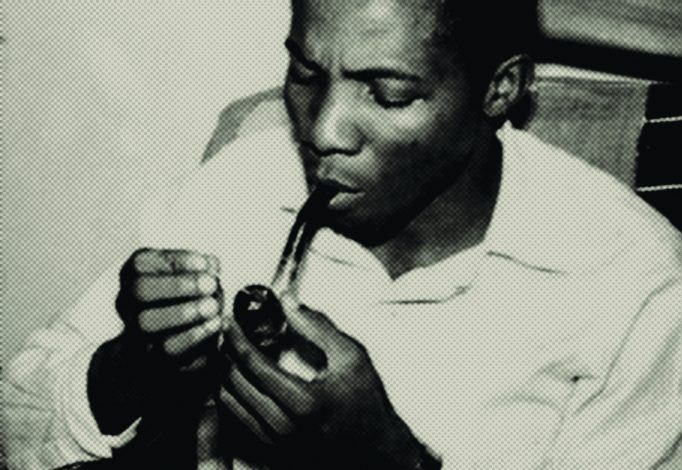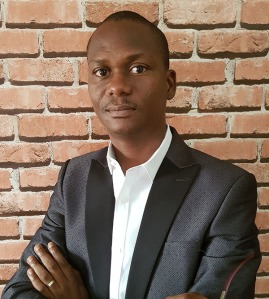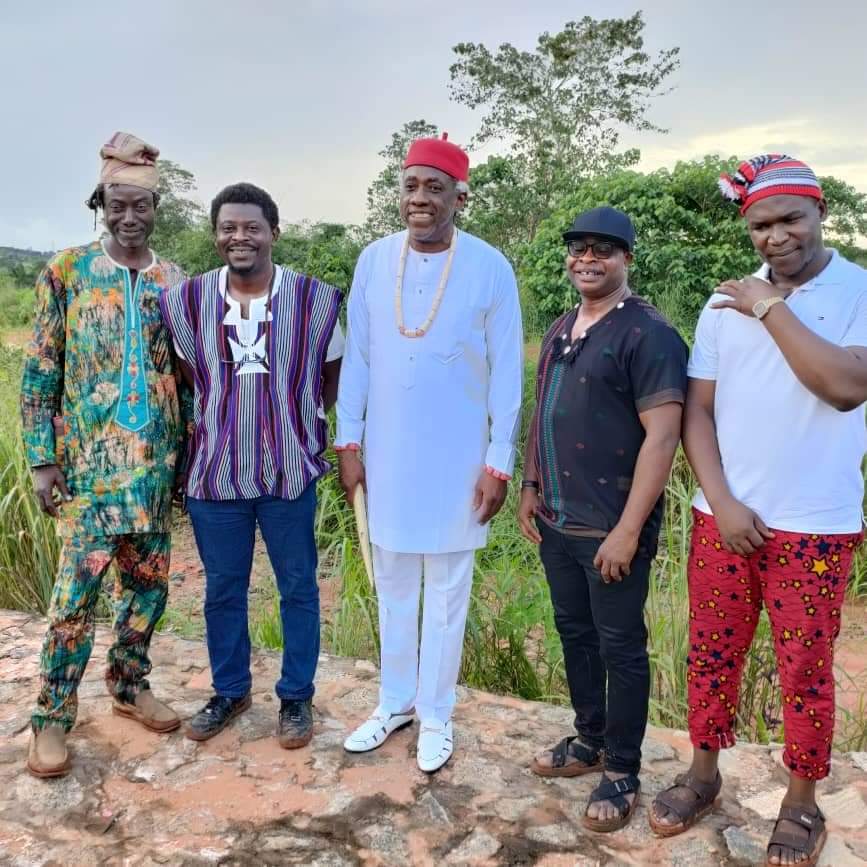A feast of words as Poets ‘Return to Idoto 3’ in Honour of Okigbo

For late modernist poet Christopher Okigbo, poets gathered in Awka and his hometown of Ojoto to ritualistically immerse themselves in the quintessential Okigbo lore. It was a rewarding experience for the poets and Ojoto community leaders in Anambra State who promised greater support for the poetry festival

IN commemoration of the legacy of the late poet, musician, and librarian, Christopher Okigbo, poets converged on the Anambra State capital, Awka, and the late poet’s rustic hometown of Ojoto in a poetry festival dedicated to his name tagged ‘Christopher Okigbo Poetry Festival 2021, the third in the series. The festival is held from August 19 through 22, 2021. The poets had gathered to celebrate the many achievements of Okigbo, who died young at 32 and to “relive the memories” of the legend. The festival is organized by the Odili Tony Ujubuonu and James Eze-led Awka Literary Society (ALS).

Okigbo was a poet, teacher, and librarian, who died fighting for the independence of Biafra in the bloody Nigeria Civil War between 1967 and 1970, and is widely acknowledged as an outstanding postcolonial English-language poet and one of the major modernist writers of the 20th century. The festival, themed ‘Return to Idoto 3,’ is the third edition, held every three years in Ojoto town, where poets celebrate the life and legacy of Okigbo in various performances, particularly poetry where he’s most fondly remembered.
The program kicked-off on the evening of Thursday, August 19 with poetry performances and readings by such poets as co-founder of Awka Literary Society, James Eze, who was the star poet of the festival (also the winner of the Association of Nigerian Authors -ANA- 2020 with his poetry collection Dispossessed), Aj Daggar Tolar (DisSick Republic among other works), Ifesinachi Nwadike (How the Morning Remembers the Night), Nwachukwu Egbunike (Nka!), Ikechukwu Emmanuel Asika (The Portrait of an Artist as a Mad Man) and other young poets like Izunna Okafor. Other advertised poets for the Okigbo festival were the Igwe of Obosi, Eze Iweka III, and Evelyn Osagie, who couldn’t make it on health grounds. Writer and journalist, Anote Ajeluorou, would later join the poetry party on Friday, August 20.
Speaking on the success of the festival via online Spirit of Nigeria radio show targeted at the Africa diaspora and hosted by journalist, writer, and culture advocate, Mr. Jahman Anikulapo, co-organiser Eze said, “This year’s programme is outstanding. The villagers have accepted the festival as their own initiative and have trooped out en masse to support us. The village head was also on hand to receive us. As the star poet of the year, it means so much for my career. My fellow writers have finally recognized my conviction for being a writer. I am still trying to develop myself, and also getting recognized among my contemporaries and also create a legacy that younger and upcoming poets can follow.”
One of the performing poets and revolutionary thinkers, Aj Daggar Tolar said, “Okigbo wasn’t just a commissioner of the pen, he also used his art to dialogue with society. All the critical questions Okigbo posed to Nigeria still remain unanswered. We need to empty our lives to dialogue with society, see how it can be reconstructed and create a better and peaceful society for people to live in.”

Speaking on his experience in Idoto, Ajeluorou said, “It’s been a great experience here in Idoto. The entire world should be here to experience this; it’s amazing what these poets have done in the past few days. Eze has done a great job. It’s like Okigbo has been reawakened from death these past few days. This festival is likely to grow bigger because the town’s royalty has promised to also be involved and when we have someone like that involved, it just feels great; the king of Ojoto Eze Mbamalu also deserves kudos for pledging his support. Mr. Ujubuonu and Eze have carried the flag themselves well and this is the third edition, and they have tried to engage the community in the festival.
“I urge the state government to think of ways of harnessing this festival into the Idoto cultural calendar. The entire community should gather to celebrate this festival. The king suggested doing this every two years instead of once in three years, but I suggest it should be a yearly festival if there’s proper funding and to realize the essence of the man Okigbo. The narrow footpath to Idoto river should also be paved so tourists can visit and have a feel of the place. This is where the government can come in to harness the tourism prospects Idoto promises. Little funding will get the place ready for serious tourism that will impact on the economy of Ojoto.”
One of the guest poets, Nwadike also spoke of his experiences at Idoto river and Ojoto community generally, when he said, “This is something I’d like to experience again. This experience will outlive me as a human being. It’s like a living tradition which we can immerse ourselves, in a practical sense. It felt as if Okigbo came to life during the occasion. It’s one thing to read about something and another thing to live through it.
“This is something this generation can learn from. There is a different feeling to love through history, his resting place and places he stopped by. We read his books, now we are going through that rite of passage. Young poets should undergo these rites. We also need to put our words out that this festival is here to stay.”
Although support has been scant so far, Eze said his government supported the first time we did this, “but I guess he felt private organizations should also get involved. The aspect of logistics has been taken care of as we now have a tour bus. What we want to do is create a good road to Idoto so more tourists can visit.
“We can’t depend on the government alone to do all of these. There are millionaires who should identify with this initiative and who can support this. We received a lot of encouragement from the government when we held the first edition and the governor also hosted us to dinner. It would be unproductive to depend on the government all the time.”


